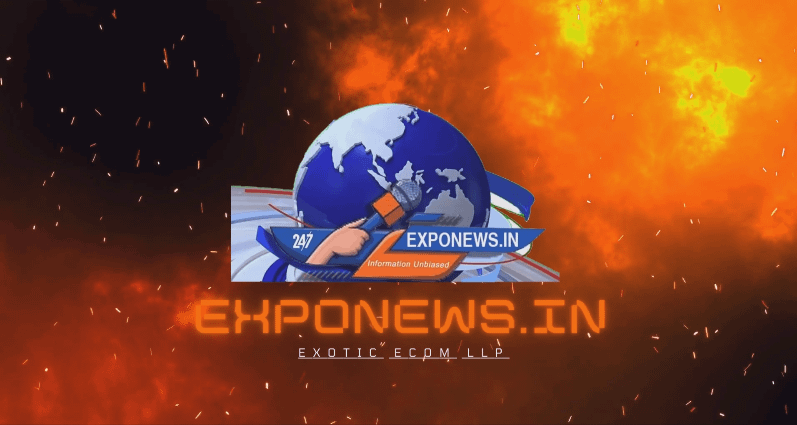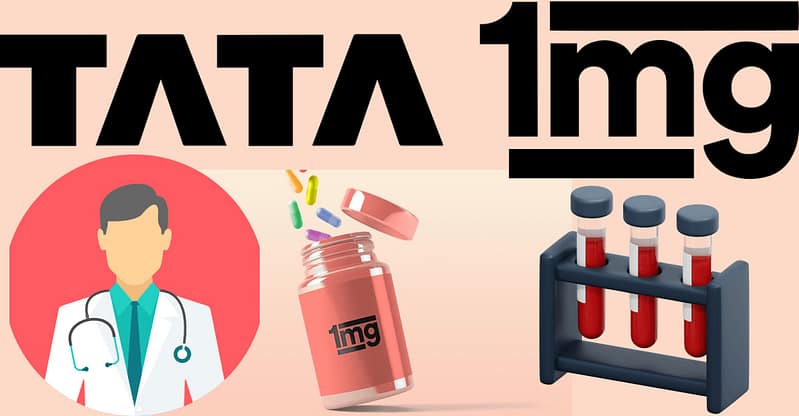In yet another provocative action that is likely to worsen the already strained India-Canada diplomatic ties, Ottawa has alleged that Indian authorities used cyber technology to track and target Khalistani Sikh separatists and Canadian government networks.
Canada’s CSE (Communications Security Establishment) — the country’s spy agency, has placed India on the list of nations from which Canada faces a risk of a cyber attack.
The CSE, in its National Cyber Threat Assessment Report for 2025-26, has included India alongside countries like China, Russia, Iran, and North Korea, which the intelligence agency believes pose a threat of carrying out a cyber attack against Canada.
In its report, the CSE has alleged that India misused its cyber capabilities to track Khalistani elements and government dissidents in other countries, including Canada.
The report also claimed that a pro-India hacktivist group launched a Distributed Denial-of-Service or DDoS attack on several Canadian websites, including some belonging to the Canadian military, after Canada accused India of being involved in the June 2023 killing of Khalistani separatist Hardeep Singh Nijjar.
India-Canada diplomatic ties have plummeted since Prime Minister Trudeau alleged in September 2023 that Indian agents were involved in the killing of Hardeep Singh Nijjar, a Khalistani terrorist, who was shot dead by masked gunmen outside a gurdwara in in Surrey, British Columbia in June that year.
India has repeatedly and vehemently rejected Trudeau’s charges as “absurd” and criticized his government for being soft on Khalistani supporters living in Canada. The Khalistan movement is banned in India but has support among the Sikh diaspora, particularly in Canada.
Last month, India expelled six Canadian diplomats, following which Canada, in a tit-for-tat move also ordered six Indian diplomats to leave the country.
In a statement, the Ministry of External Affairs (MEA) said India received a “diplomatic communication from Canada suggesting that the Indian High Commissioner and other diplomats are ‘persons of interest’ in a matter related to an investigation in that country”.
“We have no faith in the current Canadian government’s commitment to ensure their security. Therefore, the government of India has decided to withdraw the high commissioner and other targeted diplomats and officials,” the MEA had said.
Day after the expulsion of diplomats, the Royal Canadian Mounted Police, in a presser, claimed its investigation had led to the conclusion that Nijjar was assassinated by the Lawrence Bishnoi gang at the behest of the Indian state.
Responding to the allegations, India asserted that it had asked Canada to extradite members of the Lawrence Bishnoi gang but New Delhi is yet to receive any response from Ottawa on the matter.
“We informed Canada about the Lawrence Bishnoi gang and its syndicates and requested their provisional arrest and extradition some years back, and also recently. However, there has been no response from Canada so far” MEA said in a statement.
The statement that Canada’s prime minister has declared India as a sponsor of terrorism and condemned Prime Minister Narendra Modi and his government for orchestrating transnational terrorism is a highly controversial and sensitive issue. Such a scenario, if it were to occur, would represent a significant escalation in diplomatic tensions between Canada and India, two countries with historically stable relations. While there have been recent tensions between the two nations, particularly surrounding allegations by Canadian authorities regarding the involvement of Indian agents in the killing of Hardeep Singh Nijjar, a Canadian Sikh activist and separatist leader, formal accusations like branding India as a state sponsor of terrorism would have severe global diplomatic consequences. Canadian Prime Minister Justin Trudeau on Wednesday acknowledged that he had only intelligence and no “hard evidentiary proof” when he alleged the involvement of Indian government agents in the killing of Khalistani separatist Hardeep Singh Nijjar last year. Testifying before the public inquiry into foreign interference in federal electoral processes and democratic institutions, Trudeau claimed the Indian diplomats were collecting information on Canadians who are in disagreement with the Narendra Modi government and passing it to the highest levels within the Indian government and criminal organisations like the Lawrence Bishnoi gang.
Prime Minister Justin Trudeau did publicly raise concerns about India’s alleged involvement in the incident, which strained bilateral ties and led to diplomatic expulsions from both countries. However, a blanket condemnation of India as a state sponsor of terrorism has not been officially declared, and such a statement would likely involve far-reaching consequences in trade, international relations, and global security partnerships.
It’s important to note that diplomatic disagreements, even significant ones like this, are often handled with caution to avoid further escalation, and both nations have emphasized the importance of ongoing dialogue to resolve these disputes.
The diplomatic rift between India and Canada intensified after Ottawa accused New Delhi of promoting criminal activities on its soil, followed by both sides expelling each other’s high commissioners. However, many more escalatory options on both sides could still happen, making India-Canada relations even worse than they already are. “Prime Minister Trudeau’s hostility to India has long been in evidence. In 2018, his visit to India, which was aimed at currying favour with a vote bank, rebounded to his discomfort. His Cabinet has included individuals who have openly associated with an extremist and separatist agenda regarding India. His naked interference in Indian internal politics in December 2020 showed how far he was willing to go in this regard.
Canada’s Foreign Minister Mélanie Joly has even suggested that “everything is on the table” when asked if Ottawa would consider imposing sanctions on India. If Canada does hit the trigger button and impose sanctions on India, New Delhi also has some options to hurt Ottawa back.
What actions India can take if Canada escalates the row further?
- Nearly a quarter million Indian students currently study in Canada. If India were to pull the plug and bar Indian students from studying in Canada, it would have a devastating impact. It could paralyse Canada’s education financial system, into which billions in Indian fees go.
- India can cancel all Overseas Citizen of India (OCI) cards of Canadian citizens of Indian origin who are sympathetic to pro-Khalistan elements, a step that would force many to reconsider their involvement.
- Another potential measure involves suspending property rights for Khalistani supporters, delaying new visas, and increasing scrutiny. This could pressure supporters of the movement to reconsider their stance.
- India may also suspend multiple-entry visas for suspected Canadian citizens of Indian descent, which could spark a backlash within the Canadian Indian community, possibly impacting domestic politics in Canada.
- India could impose trade sanctions, just like Canada is considering against New Delhi. As a top-10 trading partner, India could significantly harm Canada’s economy, which already faces a trade imbalance in India’s favour.
Additionally, India can freeze Canadian financial institutions and pension funds with investments in India. While unlikely, it remains a possibility as tensions escalate.
The banned terrorist outfit ‘Sikhs for Justice’ (SFJ) announced a reward of $5,00,000 to hunt down Indian High Commissioner, Sanjay Verma
In an unprecedented move, the Canadian government led by Justin Trudeau declared Verma a ‘person of interest’ in the country and accused him and other Indian diplomats of threatening the safety of South Asian Canadians.
Trudeau and his law enforcement agencies have failed to provide evidence to back their outlandish claims. However, the Canadian Prime Minister’s dog whistling was enough for SFJ to unleash its Khalistani extremists on Indian High Commissioner Sanjay Verma.
In a statement, SFJ stated, “By expelling Indian High Commissioner Sanjay Verma and other Diplomats, PM Tridean has demonstrated his government’s unwavering commitment to bringing to justice those who facilitated the assassination of a Canadian Citizen Hardeep Singh Nijjar Canadian on Canadian sol respective of the pressure Tradeas Government faced from Modi Government and pro-Hindutva lobby in Canada.“
The terror outfit, headed by Gurpatwant Singh Pannun , accused Indian High Commissioner Sanjay Verma of providing ‘logistical support’ for the murder of terrorist Hardip Singh Nijjar and heading a spy network in Canada.
‘Sikhs for Justice’ informed that it has set aside a budget of half a million dollars to track down Verma to ensure ‘justice’, hinting at a nefarious agenda to attack and kill the Indian diplomat.
“Allocating a hefty budget of $500,000, Sikhs For Justice announced that even after Verma’s expulsion and departure from Canada, it will continue tracking his movements and whereabouts in pursuit of bringing him to justice for his role in the assassination of Shaheed Nijjar,” it announced.
The terror organisation built upon the foundation of a politically motivated decision of Justin Trudeau to lend credence to the baseless allegations of the involvement of Sanjay Verma in threatening the ‘life and liberty of Pro Khalistani Sikhs on Canadian soil’ and operating a ‘spy network manned by pro-Hindutva’ Indo-Canadians.
Michael Rubin, a senior fellow at the American Enterprise Institute and director of policy analysis at the Middle East Forum, said India has to stand up for itself and the problem with Canada’s accusations is the same as it was more than a year ago.
“India has got to stand up for itself. The problem with Canada’s accusations today is the same as they were more than a year ago. They’re alighting a lot of the evidence. It seems to be that the Canadian crisis seems to arise whenever Justin Trudeau gets into political trouble. He’s now polling ten percent behind the opposition leader,” Rubin told ANI.
Answering a query about the US raising issue of an alleged plot to kill a Khalistani separatist, Rubin said the Americans recognize the complexity of the issue and it isn’t simply a matter of accusing India for political gain. Rubin said India’s San Francisco consulate has been attacked twice by Sikh extremists, by Khalistani militants.
“Our take on this is that the Americans realise that there is a nuanced problem. The difference between the Americans and the Canadians, the Canadian seems to be flying by the seat of Justin Trudeau’s pants… The Americans recognize the complexity of the issue. This isn’t simply a matter of accusing India for political gain. Look, the San Francisco consulate has been attacked twice by sikh extremists, by Khalistani militants,” he said.
“The Americans understand at this point that the Khalistani militants are engaged in organized crime and therefore they recognize that not all is as meets the eye. That’s why the Indians seem to also be much more willing to trust the American investigation because the American investigation is much less designed to protect a single Prime Minister and much more designed to get to the heart of the matter,” he added.
Knives are out between India and Canada as both countries have now expelled six diplomats each. India has withdrawn its high commissioner in Canada, and the Canadian police have disclosed details about the alleged link between the “agents” of the Indian government and the killing of Khalistani leader Hardeep Singh Nijjar.
The diplomatic tension between India and Canada was sparked by Prime Minister Justin Trudeau’s allegations in Parliament in September 2023. Trudeau had revealed that his government is “actively pursuing credible allegations” linking Indian government agents to the murder of Hardeep Singh Nijjar on its soil.
.
Religious extremist and a designated terrorist, Hardeep Singh Nijjar was shot dead by two youths in Canada last year. Hardeep Singh Nijjar was shot in the parking lot of a gurdwara in Canada’s Surrey. Hardeep Singh Nijjar was the chief of Khalistan Tiger Force (KTF) and held a significant position in Guru Nanak Sikh Gurudwara Sahib in Surrey.
Hardeep Singh Nijjar was leading a campaign and propaganda against India. He was active in organising and leading demonstrations outside Indian missions in the US, the UK, Germany, and Canada. He is also behind targeted killings in Punjab. He used to work in close connection with other designated terrorists like Gurpatwant Singh Pannun, and Paramjit Singh Pamma under the banner of Sikhs for Justice (SFJ). The Ministry of Home Affairs (MHA) banned SFJ way back in 2019 due to its link with terrorist activities.
In 2020, NIA filed a chargesheet against Pannun, UK-based Paramjit Singh Pamma, and Canada-based Hardeep Singh Nijjar. In its charge sheet, NIA had designated SFJ as a frontal Khalistan terrorist outfit that is operating under the garb of a ‘Human Rights advocacy group’. Its offices are located in different countries including the USA, Canada, the UK, Australia, etc. The outfit is operating in countries like Pakistan.



















